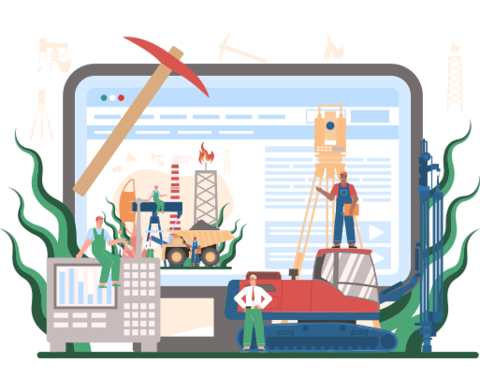



ERP (Enterprise Resource Planning) systems are widely used in the construction industry to streamline project management, improve resource planning, enhance data accuracy, and control costs across projects. Here’s a breakdown of why SkyERP is essential in construction .SkyERP is specifically designed to meet the unique demands of the construction industry, providing a robust platform that enhances project management and operational efficiency.

Unified Platform: ERP consolidates project data—schedules, budgets, resources, and documentation—onto one platform, improving visibility and coordination across teams.
Real-Time Updates: Team members can access real-time updates on project status, which helps in tracking progress, ensuring timelines are met, and identifying delays early.
Budgeting and Cost Control: ERP systems track expenses and allocate budgets, helping construction firms manage project costs and avoid budget overruns.
Accurate Accounting and Billing: Automated accounting features ensure accurate billing, invoicing, and financial reporting, reducing manual errors and improving cash flow management.
Labor Scheduling: ERPs help optimize workforce deployment by tracking employee hours, productivity, and skills, ensuring the right workers are on the right tasks at the right time.
Material Management: ERP systems track materials from procurement to usage, preventing shortages or surpluses, and ensuring materials are used efficiently to reduce waste.
Vendor Management: ERP simplifies vendor selection, purchase orders, and contract management, making it easier to manage suppliers, track orders, and negotiate better terms.
Inventory Management: ERPs track inventory in real-time, helping construction firms maintain just-in-time inventory levels and reducing the need for excess storage.
Safety Compliance: ERP systems can help monitor safety standards and compliance requirements, reducing risks of accidents, penalties, or project delays.
Risk Assessment and Mitigation: ERPs allow firms to assess project risks related to finances, timelines, and resources, enabling proactive risk mitigation.
Detailed Project Scheduling: ERPs allow detailed scheduling with clear milestones, dependencies, and timelines, helping project managers keep construction timelines on track.
Resource Allocation: ERPs assist in resource allocation and avoid overloading or under-utilizing resources, optimizing productivity while maintaining schedules.
ERP systems are crucial to the healthcare sector because they solve operational issues, increase productivity, and finally enhance patient care. Organizations can improve the delivery of healthcare by reducing processes, ensuring data security, and promoting strategic decision-making through the use of ERP solutions designed specifically for the healthcare industry.